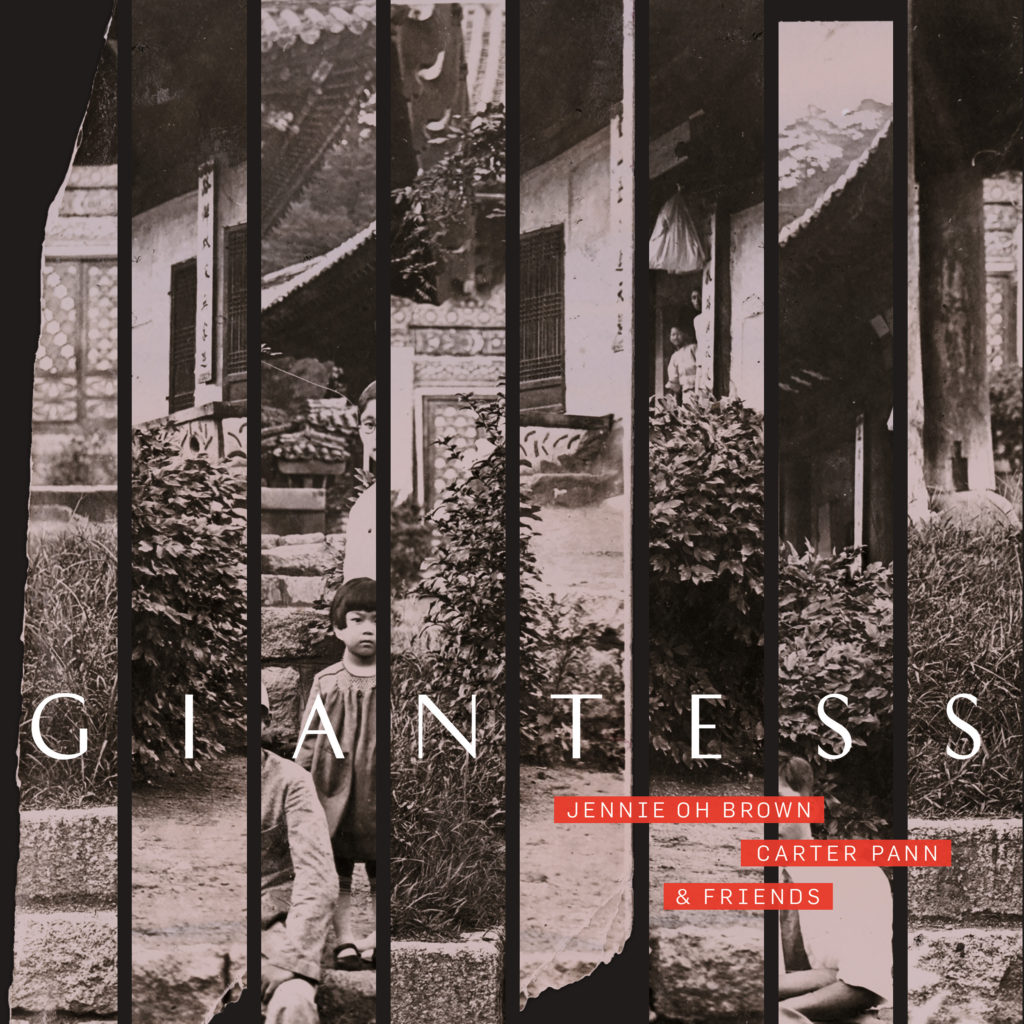GIANTESS marks the second solo album of flutist Jennie Oh Brown. A deeply personal project, this album is dedicated to her late grandmothers. Both grew up, raised families (at times as single mothers), and survived during a time when Korea was ravaged by war, oppression, and poverty. This collection of works captures their spirits through stories of courage, wonder, faith, struggle, and loss.
2016 Pulitzer Prize Finalist Carter Pann joins Brown as collaborative pianist on his own works, as well as Shulamit Ran’s Birds of Paradise,which opens the album. A vibrant and colorful work, the brilliance of Bird’s outer movements beautifully frame the profoundly soulful second movement. Pann’s Giantess (commissioned in 2017 by Flute New Music Consortium) embodies its title in this heroic, larger-than-life work for flute and piano. The virtuosic demands on both flutist and pianist produce a rhythmic drive and sheer adrenaline rush. However, there also remain exquisitely beautiful and tender moments that make the heart sing. Giantess is contrasted with Pann’s Melodies for Robert for flute, cello, and piano (commissioned by SDG Music Foundation) where endless melodies and lush harmonies bring a calm lyricism to this pair of movements. This work was created as an homage in memoriam to Robert Vincent Jones, celebrating his life as one can imagine bells tolling and spirits rising in Pann’s writing. Finally, Pann’s Double Espresso for flute and piano is a thrilling 2 minute set of “fully-caffeinated” fireworks that will make the pulse race from beginning to end.
Valerie Coleman’s Wish Sonatine, based on the beautiful poem Wish by Fred D’Aguiar (recited by Jennifer Parker Harley), depicts the middle passage through which Africans were trafficked across the Atlantic by tall ships to be sold into slavery. This valiant struggle to rise against impossible circumstances inspires every bar of this descriptive work. Daniel Paul Horn, piano, joins Brown in these performances.
Misook Kim’s Amazing Grace for flute and piano is derived from the hymn, Amazing Grace and the main motivic ideas from the Korean folksong, Arirang, both of which make use of the pentatonic scale. The introduction of the flute part in Kim’s Amazing Grace represents the Daegeum, a large bamboo transverse flute used in traditional Korean music and uses extended techniques throughout. Kim performs together with Brown in this performance.
Visionary composer Augusta Read Thomas’ work for flute and string quartet, Plea for Peace, was written to commemorate the 75th anniversary of the world’s first nuclear reactor, CP-1. Originally written as a vocalise (a wordless melody for voice), Thomas has created this version for alto flute. The constant interplay of tension and resolution is heightened by each perfectly nuanced and finely crafted phrase. This work is recorded together with Elizabeth Brausa Brathwaite and Cristina Buciu, violins, viola, and Paula Kosower, cello.
Brown is a founding member and Artistic Director of Picosa, a Chicago-based chamber ensemble dedicated to music that crosses boundaries of genre and time. She also serves on the faculties of Wheaton and Elmhurst Colleges, Interharmony International Music Festival, and Credo Flute, where she also directs the program.
Brown’s first album (Innova 919), “Looking Back: Flute Music by Joseph Schwantner”, was met with critical success.
“As evidenced by this album, Jennie Oh Brown really understands Schwantner’s compositional intent, and her playing reflects the beauty, intensity, rawness, and virtuosity his music requires. She excels in changing characters rapidly, and her beautiful, expressive sound is perfectly suited to Schwantner’s emotional, lyrical, and acrobatic music.” – Jennifer Slaughter, National Flute Association Flutist Quarterly, Fall 2016

